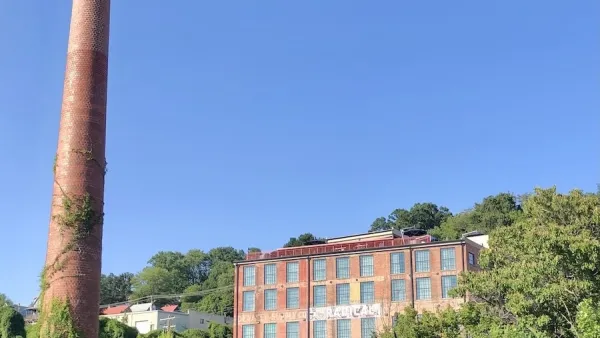Officials in cities along the East Coast are realizing that maybe they shouldn’t rebuild on land that repeatedly floods. But that’s easier said than done.

There is an extreme, persistent lack of affordable housing in the U.S. There is also an accelerating host of climate-related changes to our landscape—severe heat and drought, increased violent storms, rising sea levels, and worsening flooding. Each is a significant challenge on its own, but the lack of affordable housing and the increase in climate-related changes are related in many ways.
Lower-income households have historically been forced to live in less desirable areas—often flood-prone ones—making them more vulnerable to climate change-aggravated disasters. And where they have settled on higher ground, they may find themselves pushed out by wealthier people who are also fleeing sea level rise. Aid for recovery from frequent and severe disasters is often apportioned slowly and inequitably, compounding these problems. Meanwhile, in a cost-conscious industry, finding the funds to build affordable homes that are resilient to storms and flooding is an ongoing challenge.
While there are cities, states, and municipalities that are doing their best to make all sorts of buildings resilient, officials are usually responding to weather-related events rather than preemptively looking at issues like expected sea level rise, says Guillermo Ortiz, who formerly served as a researcher with the Center for American Progress and now works as the sustainability and diversity educational programs manager at the University of California. And when it comes to affordable housing development, the main concern is still about building more units. This is shortsighted thinking, says Ortiz. If you build 100 affordable units and then lose them in the next storm, you haven’t improved the situation.
Officials in areas like North Miami, Florida, and Princeville, North Carolina, are taking a different approach—they’re deciding not to rebuild on land that has seen its fair share of flooding and instead, they are focusing on buyouts, building on higher ground, and other mitigation efforts.
FULL STORY: Deciding Not to Rebuild After Climate-Related Disasters

Planetizen Federal Action Tracker
A weekly monitor of how Trump’s orders and actions are impacting planners and planning in America.

Chicago’s Ghost Rails
Just beneath the surface of the modern city lie the remnants of its expansive early 20th-century streetcar system.

Study: Anti-Homelessness Laws Don’t Work
Research shows that punitive measures that criminalized unhoused people don’t help reduce homelessness.

The French Solution to Congested Tunnels: Make Them Car-Free
Bay Area transportation officials keep expanding car capacity. Lyon’s Croix Rousse Tunnel offers a different way.

Missouri Governor Reverses Anti-Discrimination Housing Policies
A new state law bars cities from prohibiting source-of-income discrimination against tenants using Section 8 housing vouchers.

USDOT Launches Unfunded 'SAFE ROADS' Program
The program targets “distractions” and “political messages or artwork,” and paves the way for autonomous vehicles.
Urban Design for Planners 1: Software Tools
This six-course series explores essential urban design concepts using open source software and equips planners with the tools they need to participate fully in the urban design process.
Planning for Universal Design
Learn the tools for implementing Universal Design in planning regulations.
City of Fort Worth
planning NEXT
Mpact (founded as Rail~Volution)
City of Camden Redevelopment Agency
City of Astoria
City of Portland
City of Laramie





























